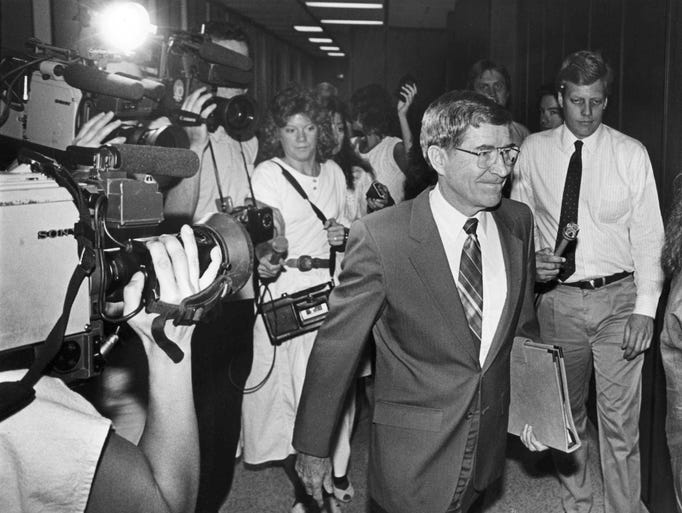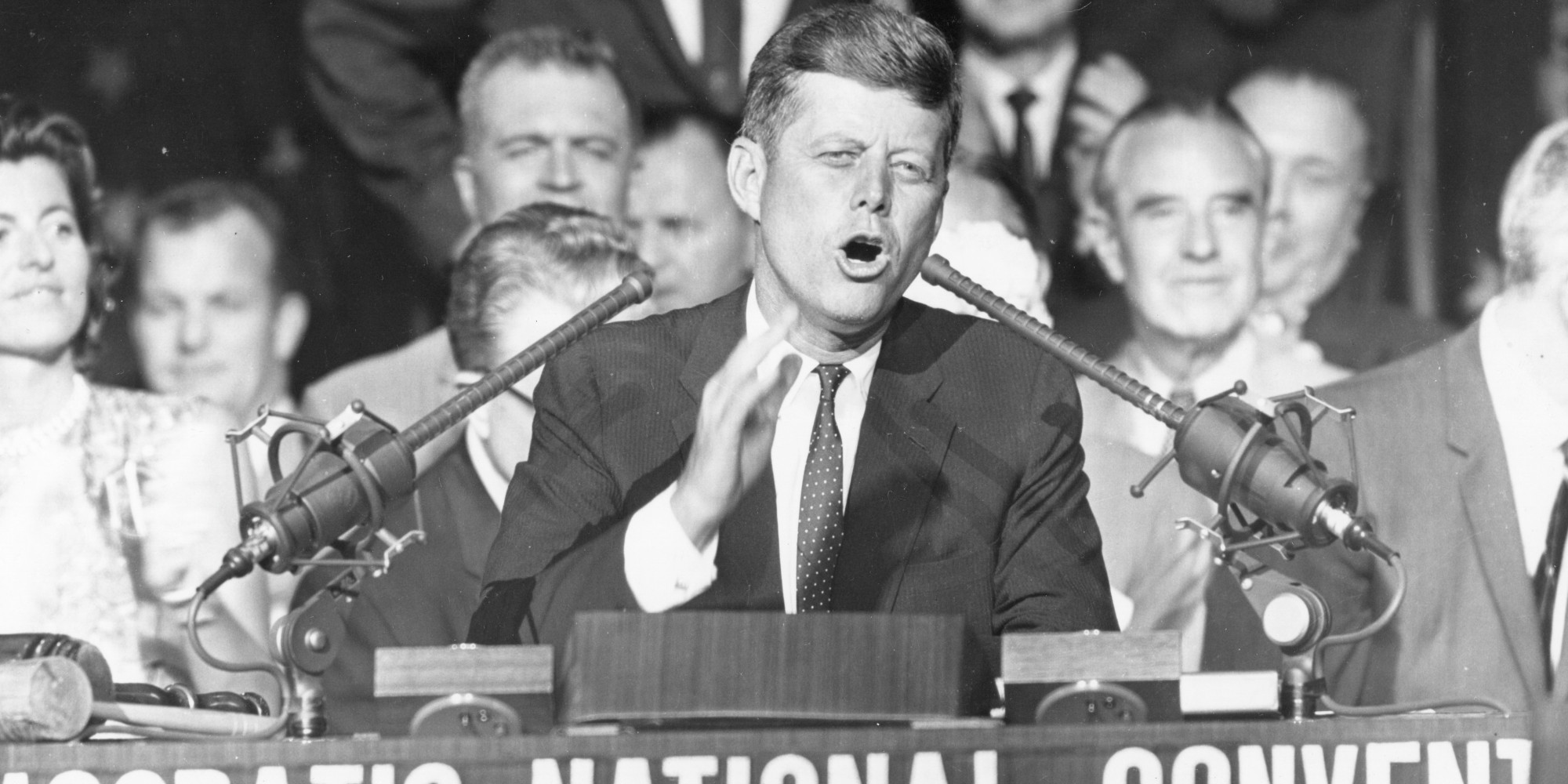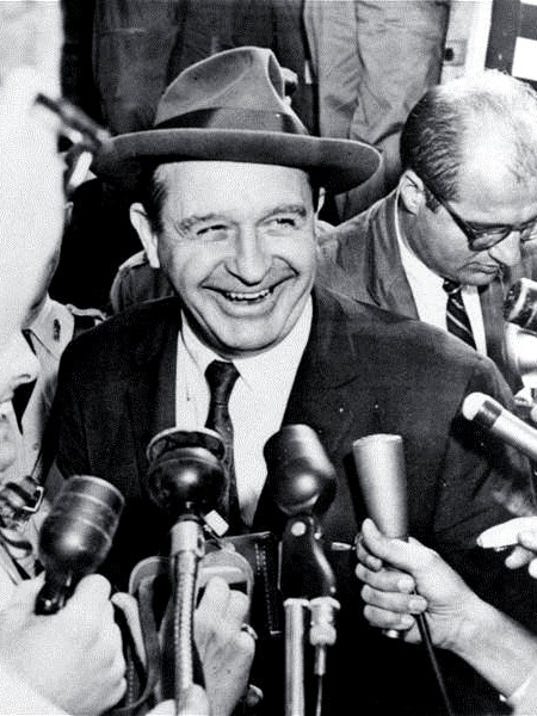A Foreign Snapshot
Taking office in 1957 and winning a decisive election in 1959, British Prime Minister Harold Macmillan had accomplished much in his six years as Prime Minister. Military modernization was rammed through to rejuvenate British prestige after the disastrous Suez Crisis, the economy was growing, and the British Colonial Empire was peacefully set toward decolonization. However, after all of this and what was coming to 12 years of Conservative Party governance had exhausted the party and left the fatigued Prime Minister in poor health.
The revelation that Secretary of State of War John Profumo was engaged in a torrid love affair hammered the nails in Macmillan’s coffin. Already wracked by stress, the scandal caused Macmillan to announce his resignation, leaving the leadership race for the Conservatives wide open.
After several possible candidates were either too divisive or refused to run – the most notable being Foreign Secretary Alec Douglas-Home – many of the liberal wing and the conservative Monday Club wing settled on Colonial Secretary Iain Macleod. Though disliked by many on the right due to his pushing of rapid independence of Britain’s Colonial Empire (though close ties were maintained in the French model, except in the case of South Africa, Bechuanaland, and Rhodesia, all three of which declared themselves republics) the lack of other consensus choices lead to his appointment in Summer 1963.
Meanwhile, the Labour Party was rapidly gaining in the polls following the appointment of the center-left, youthful Harold Wilson as Leader of the Opposition. Attacking the Government at every turn, Wilson ran on a forward looking message aimed at the working class, stating that the "white heat of revolution" would sweep away "restrictive practices... on both sides of industry.” Having delayed holding a General Election for as long as conceivably possible, Prime Minister Macleod eventually was forced to call one for the fourteenth of August, 1964.
Wilson and Deputy Leader George Brown, a strong campaigner despite his penchant for gaffes, touted further expansion of the Atlee-government labour reforms while smearing Conservative leaders as immoral aristocrats – invoking the Profumo Affair. The Tories advocated keeping Great Britain as a world power, criticizing Wilson’s proposed slashing of defence spending – an unpopular policy after the Berlin Wall crisis and the assassination of Richard Nixon. Quite adept at this was the fiery Lord Havisham. Once, interrupted by hecklers at a rally in Manchester, his face reddened to that of a ripe tomato as he hit at one of their Wilson placards with his brass tipped cane – far from a detriment, these actions injected a needed passion into the moribund Conservatives.
The moment of the campaign, however, came as a response to Wilson’s repeated charges of Tory attacks on the working class. Scoffing in a national television interview, Macleod replied that he didn’t seek to impose a “Nanny State” like Wilson, “Where one treats the working class Briton as a mere lad just needing to be watched and guided through life.”
On election day, BBC election specialist David Butler initially predicted a hung parliament with the Liberals holding the balance. However, as marginal constituencies began to pour in the picture rapidly changed. Modest Labour swings across most of the nation were cancelled out with Tory swings in Central England, Yorkshire, and northern Scotland, dashing opposition hopes to form even a minority government. The Liberals did reasonably well, earning double digit support once more with ten seats.
-----------------------------------------
After the near constitutional crisis that the French Fourth Republic faced in the late 1950s, Georges Bidault knew the broad unity government (including all but the communists and far-right) wouldn’t last much longer. Despite the surge of support his government recieved following the assassination of Charles de Gaulle, Bidault found himself unable to draft a new Constitution with a powerful executive due to the sluggishness and inertia of the National Assembly. Instead, the WWII hero placed both the proposed Toulon Accords and several changes to the Fourth Republic’s Constitution to the people for the next general election. A mandate from them could break the legislative deadlock.Though the two center-right parties had merged into Bidault's Popular Republican Movement, what was originally looking like a win for the centrist/left parties (MRP, the Radicals/Democratic and Socialist Union of the Resistance, and the French Section of the Workers' International), the entrance of two new parties shook up the entire race. As negotiated, the Algerian FLN was allowed to run candidates in the new proportional system in the proposed districts of Algeria-littoral. Countering this was the new right-wing National Front, founded by former Paratrooper General and Algerian War veteran Jacques Massu. To secure his right flank, Bidault campaigned hard on his war record and desire to preserve France’s status as a great power, using the strong communist push as a perfect foil.
The FLN cleaned up among the native Algerians, allowed the vote for the first time in France’s history. Observations pointed out that the FLN and communist dominated native vote contrasted blatantly with the Pied Noir and Harki vote, cast for the FN and MRP for the most part.
After the ratification of the Toulon Accords and the passage of Bidault’s constitutional amendments –basically increasing the executive power of the President of the Council – the governing coalition government found itself in great disagreement over the issue of France’s colonial empire. With the rapid decolonization in the British Empire, the French defeat in Indochina, and the largely successful Algerian insurgency, independence movements were gaining ground both across the colonies and on the home front. The Communists, FLN, and SFIO joined with the Radicals and many within Bidault’s own party in pushing for decolonization. However, the MRP right wing and FN were categorically against the move, now Defense Minister Massu threatening to resign and break the coalition if independence was given.
Though personally desiring to rid the still economically problematic Fourth Republic of the headache, Bidault decided not to risk the stability of his government. Calling independence movement leaders to the Élysée Palace in 1962, a week of negotiations lead to the formation of the French Community, a military and economic confederation styled after the British Commonwealth.
---------------------------------
The conservative Coalition government of Australia (the Liberal Party representing the more populated areas while the Country Party was more rural in scope) had been in power two years longer than the British Conservatives, and unlike them were led the whole period by the towering Victorian Sir Robert Menzies. The government had survived all attempts by the leftist Labor Party to dislodge it as it oversaw Australia’s post-War economic boom, but a mild recession and the appointment of the new opposition leader Arthur Calwell were leaving it in real danger of losing the next election.However, two things would save the long-serving Menzies government. The dogged campaigning of Minister of External Affairs Harold Holt (promoted to Treasurer after the election) consistently hit the theme of the Government that with Southeast Asia flaring up the people couldn’t risk changing the government. Menzies and American President Nixon worked quite closely on the Vietnam situation, and any development there worried the nearby Australians more than any other western nation.
The Second was the Democratic Labor Party, an anti-Communist offshoot of Labor that was nominally allied with the Coalition. Come election day, DLP preference votes (Australia using instant runoff voting) kept the swing against the government from getting too large.
After three further years in office the Menzies Government was looking in far better shape. The stable economy and disputes regarding private school funding and the inclusion of Aboriginal Australians onto the voting rolls (approved by the Government in time for the election) had dramatically improved the Coalition’s position. Calwell and Labor had never really recovered from the narrow loss three years earlier, their position further hurt by a negative news story showing Calwell and Gough Whitlam waiting outside a meeting of Labor insiders – dubbed the ‘Thirty-eight Faceless Men’ by the press.
However, as Menzies prepared to call an election the main issue turned out to be foreign policy and defence. With the Vietnam War heating up to the north – several thousand Australian troops and advisors in South Vietnam – and the assassination of US President Nixon brought fears of Communism to a new high. Labor’s opposition to several new joint RAN (Royal Australian Navy)/RN bases and RAN/USN submarine communications stations were trumpeted to the skies by the Coalition. Still beset by the Petrov Affair nearly a decade before, Labor struggled to overcome the Coalition’s latest barrage.
Attachments
Last edited:





